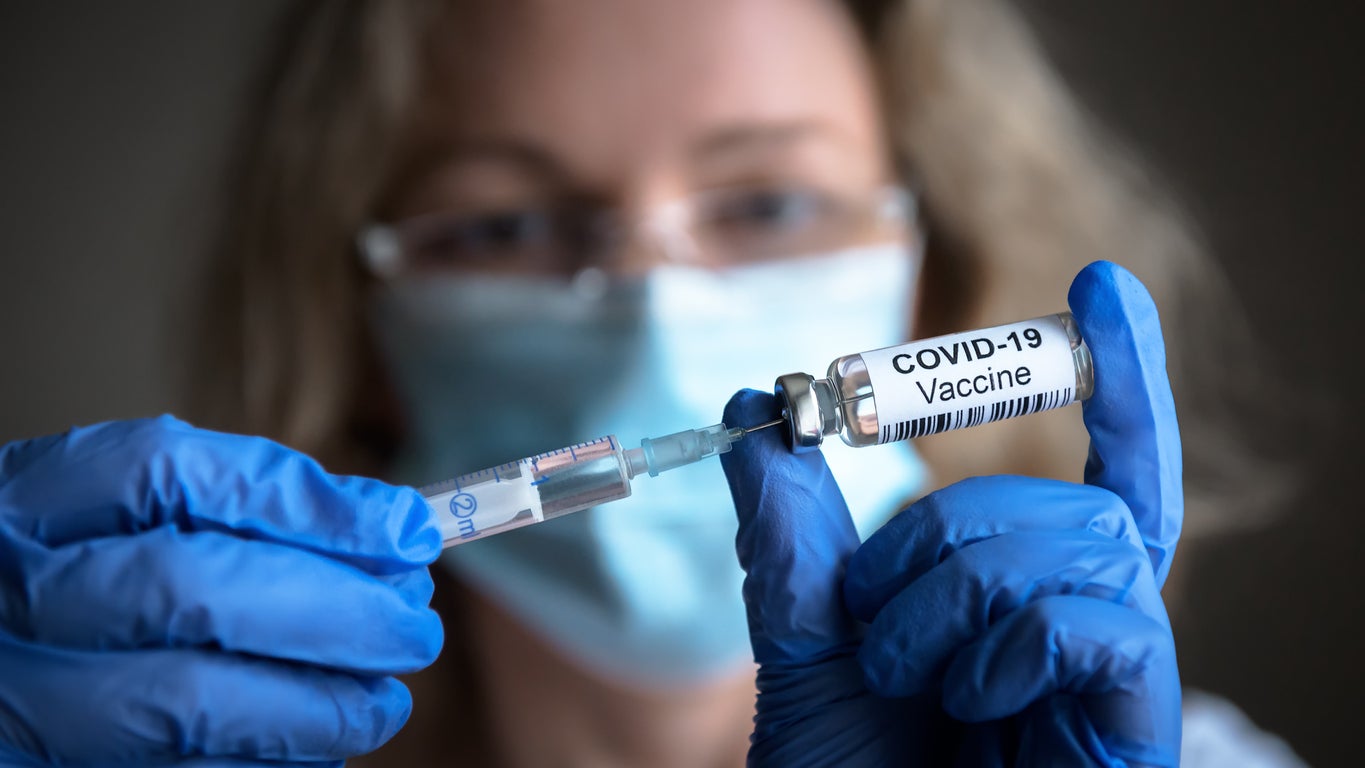Omicron is what you get in a world of ‘have jabs and have nots’
Patents should be waived, lives should be put before profits, and universal access to vaccines should be at the top of the agenda at the upcoming G7 meeting, writes Jennifer Larbie


With so many of us having one eye on Christmas, there is a real fear that the omicron variant could restrict our time with friends and family.
But this new variant is also the latest reminder that the failure to equitably roll out vaccines globally is costing lives both at home and abroad.
This failure has increased the risk of new variants and created a world of “have jabs and have nots”. When the foreign secretary said this week the free world took its eye off the ball, she really did hit the nail on the head.
The threat of Covid-19 does not stop at any national border. To keep people in the UK safe, we need leadership that ensures everyone in the world is safe.
As we know from medical experts, the best way to prevent the emergence of vaccine-resistant variants is by ensuring universal access to vaccines. Universal access not just in one country, but in all countries.
While the government has admirably ensured early and consistent vaccine stocks for the UK, it has not done nearly enough to help ensure low-income countries get their share.
Christian Aid, alongside the People’s Vaccine Alliance, has been clear that the equitable rollout of vaccines requires increased production, waiving patents, ensuring the transfer of technology and know-how, and a comprehensive debt cancellation package. For the UK, which has sufficient stocks and vaccine contracts, there is a moral responsibility to be much more flexible in redistribution and reduce the scandalous waste of expired vaccines.
These measures would open a door of opportunities for many countries, not least on the African continent where the omicron variant has rapidly spread.
However, time and again, the UK government has failed to take these necessary steps to put lives before profit and remove the barriers preventing the rapid rollout of vaccines in the global south. Now, with President Biden is calling for vaccine patents to be waived, Boris Johnson is becoming increasingly isolated.
We saw this again just last week when the UK hosted a meeting of G7 health ministers to discuss the omicron variant. A prime opportunity to press the case for action, but instead, the joint statement was worth nothing more than the paper it was written on.
The clock is ticking, and we cannot allow more wasted time and more wasted vaccine doses. At Christian Aid, we have borne witness to the personal stories behind the Covid statistics. We have supported the suffering, the frightened and the bereaved.
In places like Kenya, Sierra Leone and Burundi, Christian Aid is working with partners to tackle vaccine misinformation and mitigate the economic crisis. The challenges, however, are stark. Investment in sanitisation falls far short of what we see in the west, exacerbating the threat.
We know not enough is being done to help. The UK commitment to the distribution of vaccines falls short of both the EU and US, but even then, the UK has released only 11 per cent of its commitment in the last five months, according to the People’s Vaccine Alliance.
Meanwhile, six adults are receiving their booster shots in middle-and high-income countries for every one adult in a low-income country receiving their first course of a vaccine. It means 90 per cent of African health workers remain unprotected with some countries vaccinating less than 1 per cent of the population, according to the World Health Organisation.
Be in no doubt, as Christian Aid has seen through our work, vaccine hesitancy cannot excuse these numbers. In fact, vaccine hesitancy is lower in many countries in Africa than in the USA or many European countries. The fundamental problem is access.
With the UK hosting a meeting of G7 foreign ministers this weekend, top of the agenda must be the equitable rollout of vaccines. The foreign secretary claimed this week to want to shape the world anew, this is the first litmus test.
It’s not promises that people need, it is vaccines. This is about justice and doing what is right to protect our brothers and sisters around the world. After all, we will only safely be able to move forward in the UK, when the rest of the world can too.
Jennifer Larbie is Christian Aid’s chief of UK advocacy and policy






Join our commenting forum
Join thought-provoking conversations, follow other Independent readers and see their replies
Comments